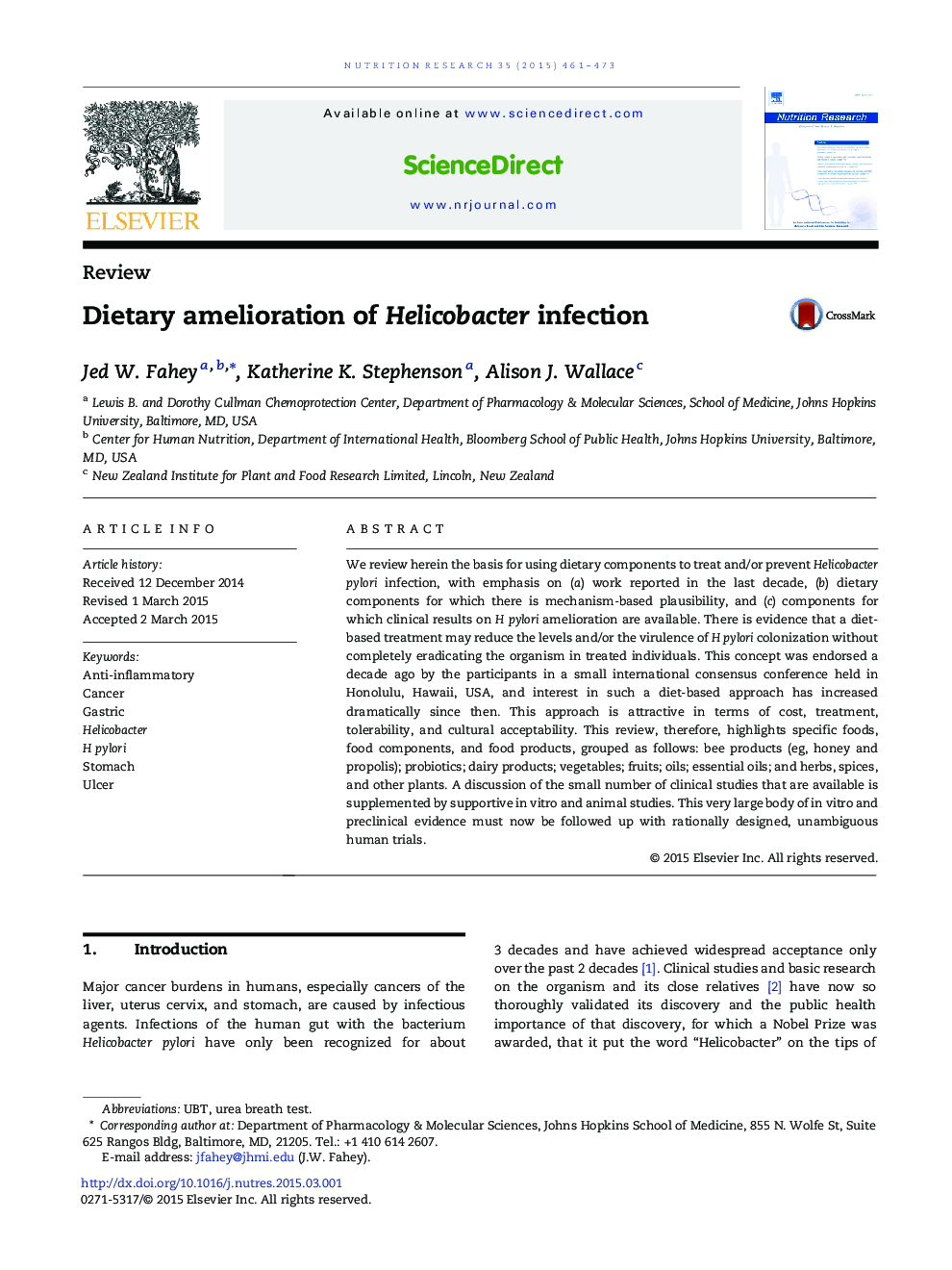| Article ID | Journal | Published Year | Pages | File Type |
|---|---|---|---|---|
| 5904469 | Nutrition Research | 2015 | 13 Pages |
We review herein the basis for using dietary components to treat and/or prevent Helicobacter pylori infection, with emphasis on (a) work reported in the last decade, (b) dietary components for which there is mechanism-based plausibility, and (c) components for which clinical results on H pylori amelioration are available. There is evidence that a diet-based treatment may reduce the levels and/or the virulence of H pylori colonization without completely eradicating the organism in treated individuals. This concept was endorsed a decade ago by the participants in a small international consensus conference held in Honolulu, Hawaii, USA, and interest in such a diet-based approach has increased dramatically since then. This approach is attractive in terms of cost, treatment, tolerability, and cultural acceptability. This review, therefore, highlights specific foods, food components, and food products, grouped as follows: bee products (eg, honey and propolis); probiotics; dairy products; vegetables; fruits; oils; essential oils; and herbs, spices, and other plants. A discussion of the small number of clinical studies that are available is supplemented by supportive in vitro and animal studies. This very large body of in vitro and preclinical evidence must now be followed up with rationally designed, unambiguous human trials.
Graphical AbstractDownload high-res image (288KB)Download full-size image
